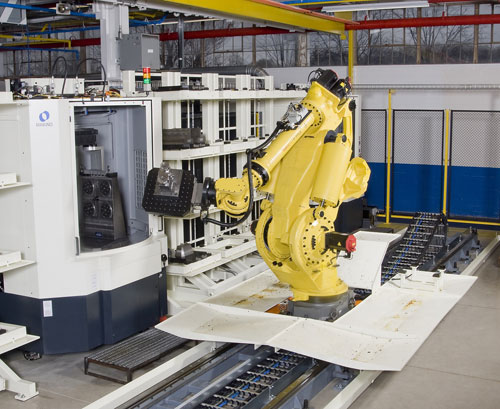A flexible manufacturing system (FMS) is a manufacturing system in which there is some amount of flexibility that allows the system to react in case of changes, whether predicted or unpredicted.
This flexibility is generally considered to fall into two categories, which both contain numerous subcategories.The first category is called as Routing Flexibility which covers the system's ability to be changed to produce new product types, and ability to change the order of operations executed on a part.The second category is called Machine Flexibility which consists of the ability to use multiple machines to perform the same operation on a part, as well as the system's ability to absorb large-scale changes, such as in volume, capacity, or capability.
Most FMS consist of three main systems:
- The "Work Machines" which are often automated "CNC machines" are connected by
- By a "Material handling" system to optimize parts flow and
- The "Central Control Computer" which controls material movements and machine flow.
The main advantages of an FMS is its high flexibility in managing manufacturing resources like time and effort in order to manufacture a new product.
The best application of an FMS is found in the production of small sets of products like those from a mass production.

- Course Coordinator: ARUNKUMAR G
